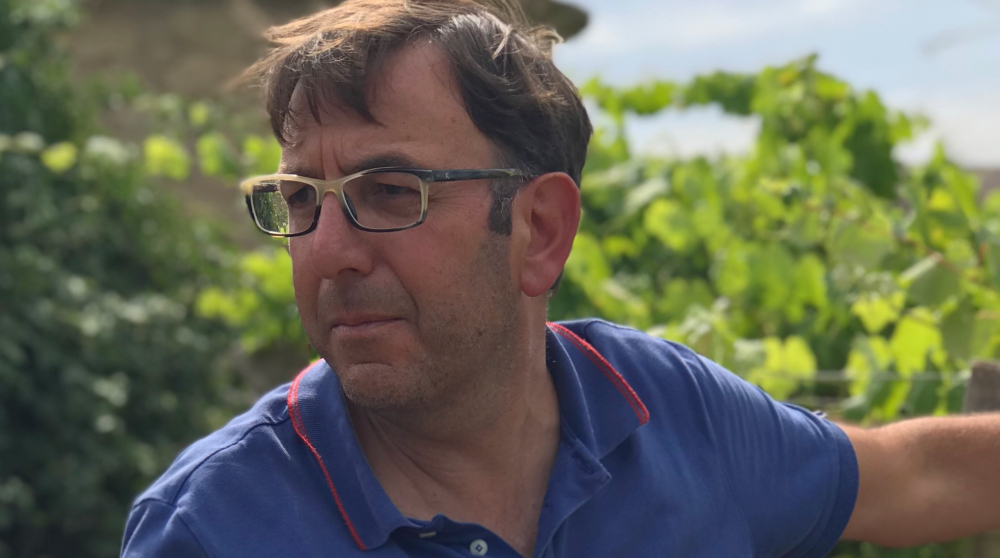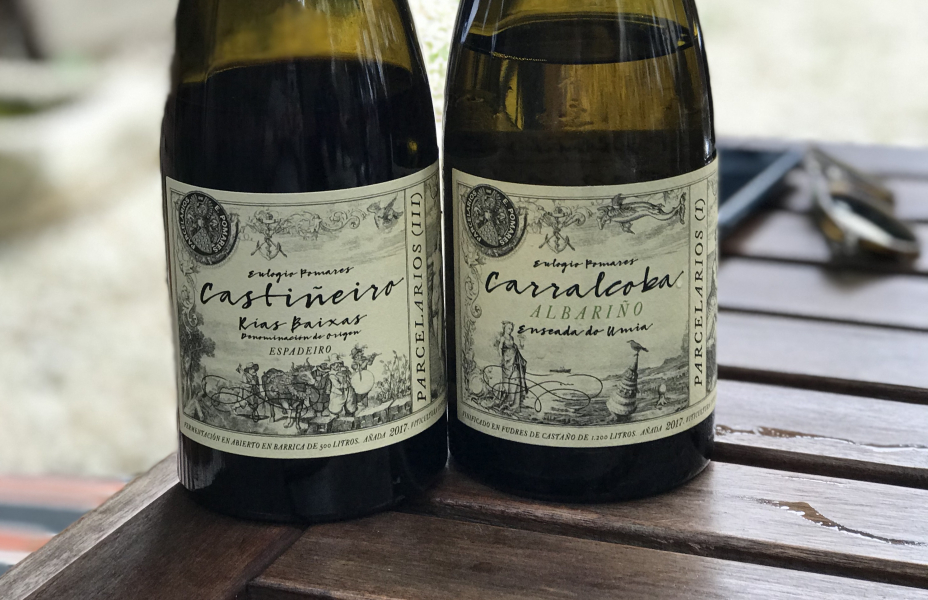Eulogio and Rebecca Pomares of Bodegas Zarate in Rias Baixas started a tiny “side project” in 2015, sourcing grapes from several plots nearby in the Val de Salnes, but vineyards located closer to the sea where the soils and microclimate are slightly different than at the Zarate estate. There are several wines in the line-up, each a single-parcel wine designated with the term Parcelarios (I), (II), etc.
The heart and soul of this project is an old vine parcel of Albarino from Rebecca’s grandmother that was planted in the 1940’s called Carralcoba. The vineyard is planted on its own roots (Pie Franco), with any vines that need replacing propagated using an ancient system called Marcottage where a branch from a neighboring plant is buried under the ground and then cut when the buried branch begins forming its own roots (as with Bollinger’s rare Vieilles Vignes Francaises). As with the Zarate vineyards, this parcel is farmed naturally with a similar regimen of biodynamic and plant extract treatments as they use at the estate. To pay tribute to the past history of the area, the wine is fermented in an old, Chestnut cask of 12HL, and aged for around 9-10 months on the lees, with full malolactic fermentation. The resulting wine is textured and complex, with a vibrant core of mineral and acid that are hallmarks of Eulogio’s wines.
As a further homage to the history of Rias Baixas, there are also Parcelarios from rare red varietals, Caiño Tinto and Espadeiro. At the turn of the 20th century, Rias Baixas was actually planted to 95% red varietals, and 5% white (now about 99% white)! Though finding well-maintained, older plantings of these varietals is a challenge. The Pomares' are committed to maintaining the heritage of these varietals, and sleuthing out these parcels to make a tiny amount of bottles for the world.
The Caiño Tinto avoids some of the rusticity of this varietal. It is fermented in older 500-liter barrels with about 30% whole cluster. It is bright and crunchy with complexing notes of rhubarb and herbs. The Espadeiro bottling, called Castiñeiro (also the name of a parcel), is extremely elegant, high toned and fine. It is fermented in neutral barrels from Burgundy for around 6 months. The bright, floral, red-fruited profile is somewhat reminiscent of a top Poulsard or Trousseau from the Jura.
The Pomares' have created an exciting project, and a fascinating extension of the amazing work they are undertaking at Zarate. A deep dive and exploration into the finest and undiscovered terroirs and varietals of Rias Baixas.

